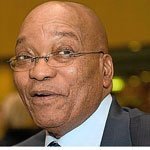
Recently, South Africa again caught the attention of the world after 34 people were killed, and another 78 were injured when South African police officers opened fire on a group of striking miners at Lonmin platinum mine in the North West province of that country.
The strike commenced on August 10 2012 and that the workers were demanding a 300% wage increase. The incident, allegedly the most violent of its kind since the apartheid era, has been coined The Marikana Massacre.
But, this is not the first incident of its kind; South Africa has repeatedly caught the world’s attention in recent times because of horrific incidents of violence. For instance, on April 12 2011, Andries “Citizen” Tatane was shot in the chest by police during a service delivery protest in Ficksburg town of the Free State province. He died from the gunshot wound. Furthermore, in 2008, 62 people were allegedly killed in that country during widespread anti-immigrant violence. Currently, South Africa is ranked as the 7th most violent country in the world ahead of Brazil and Russia.
Yet, it is puzzling to ponder why South Africa, a country often hailed for its democratic ethos, and its liberal constitution, is unable to achieve inner peace. A 2009 report in The Economist alleges that in South Africa “around 50 murders, 100 rapes, 700 burglaries and 500-plus violent assaults are officially recorded in a population of 50 million,” every day. While researchers might contend with these statistics, the aforementioned incidents speak for themselves.
But why are the cops killing poor people? And why are the poor people killing foreigners? And what is a service delivery protest anyway? Apparently, in 2012, 312 service delivery protests were recorded between January and May, allegedly ignited by issues concerning water, electricity, roads and a lack of speed humps. If the protests continue at this rate, by the end of 2012 South Africa will have recorded its highest number of protests since 1994.
Yet on March 21 2012 — South Africa’s Human Rights Day — the South African president Jacob Zuma delivered a speech in which he said, inter alia; “Today we also remember amongst many tragic incidents, the horrific events of the 21st of March 1960.On that day, 69 people were mercilessly killed and scores were injured, as police opened fire on demonstrators who were protesting against the pass laws in Sharpeville… in their memory, we worked hard to develop a progressive Constitution of the Republic, which enshrines the human rights of all our people, in a Bill of Rights.”
This Bill Of Rights, enshrined in the South African constitution, is often praised as the beacon of light of the South African nation. Yet, when one looks at the current state of affairs on the street, one wonders if South Africa has reached the twilight of its democratic temperance. Time will tell.
Tau Tawengwa








